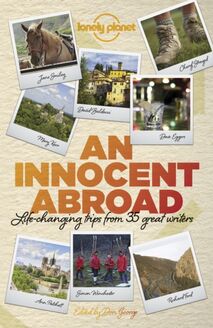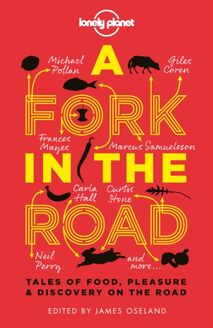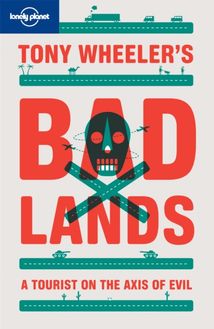-
 Univers
Univers
-
 Ebooks
Ebooks
-
 Livres audio
Livres audio
-
 Presse
Presse
-
 Podcasts
Podcasts
-
 BD
BD
-
 Documents
Documents
-
- Cours
- Révisions
- Ressources pédagogiques
- Sciences de l’éducation
- Manuels scolaires
- Langues
- Travaux de classe
- Annales de BEP
- Etudes supérieures
- Maternelle et primaire
- Fiches de lecture
- Orientation scolaire
- Méthodologie
- Corrigés de devoir
- Annales d’examens et concours
- Annales du bac
- Annales du brevet
- Rapports de stage
La lecture à portée de main
Vous pourrez modifier la taille du texte de cet ouvrage
Découvre YouScribe en t'inscrivant gratuitement
Je m'inscrisDécouvre YouScribe en t'inscrivant gratuitement
Je m'inscrisEn savoir plus
Vous pourrez modifier la taille du texte de cet ouvrage
En savoir plus

Description
Sujets
Informations
| Publié par | Lonely Planet |
| Date de parution | 01 septembre 2013 |
| Nombre de lectures | 1 |
| EAN13 | 9781743601044 |
| Langue | English |
Informations légales : prix de location à la page 0,0450€. Cette information est donnée uniquement à titre indicatif conformément à la législation en vigueur.
Extrait
Tony Wheeler’s Dark Lands
Published by Lonely Planet Publications 2013
90 Maribyrnong Street, Footscray, Victoria, 3011, Australia 150 Linden Street, Oakland CA 94607, USA 201 Wood Ln, London, W12 7Tq, United Kingdom
Edited by Emma Schwarcz
Cover Design by Roberto Devicq
Design & Layout by Leon Mackie
Printed by Hang Tai Printing Company, Hong Kong
Printed in China
1st Editon
978 1 74321 846 4
All text and images copyright © Tony Wheeler 2013
LONELY PLANET and the Lonely Planet logo are trade marks of Lonely Planet Publications Pty. Ltd
All rights reserved. No part of this publication may be reproduced, stored in a retrieval system or transmitted in any form by any means, electronic, mechanical, photocopying, recording or otherwise, except brief extracts for the purpose of review, without written permission of the publisher.
CONTENTS
INTRODUCTION
COLOMBIA
DEMOCRATIC REPUBLIC OF THE CONGO
HAITI
ISRAEL & PALESTINE
NAURU
PAKISTAN
PAPUA NEW GUINEA
ZIMBABWE
ACKNOWLEDGEMENTS
INTRODUCTION
M y first thought, when George W. Bush announced his Axis of Evil, was ‘I want to go there.’ Well, who wouldn’t? He’d inadvertently created an adventurer’s travel wish list: Iran, Iraq and North Korea, three countries that were worse than bad; they were positively evil. The fact that Iran and Iraq were sworn enemies who’d fought each other for eight years didn’t seem to matter.
So I trekked around Mr Bush’s Axis of Evil and then, for good measure, added six other countries that for assorted reasons had been labelled ‘bad’ to create my 2007 book Bad Lands . Afghanistan, home of the Taliban and temporary residence of Osama bin Laden, was – pre-invasion at least – clearly rotten to the core. Burma? Well, imprisoning a heroic Nobel Peace Prize winner would earn any country a bad tag, even before you ran the economy into the ground. Cuba was clearly a wicked place: for fifty years every American president had dedicated himself to getting rid of Fidel Castro and imposing some regime change. Gaddafi, thoroughly evil and with a Michael Jackson–like enthusiasm for theatrical outfits, still ruled Libya at the time so his desert dictatorship deserved a place on the list too. Saudi Arabia was a shoo-in: not only did they oppress women, condemn most of us as infidels and chop hands and heads off, but they also provided almost all of the 9/11 hijackers.
Finally I tossed in Albania, not because the poor Albanians had been very bad to anybody apart from themselves, but because it had been such a weird little locked-away place, with a man – Enver Hoxha – who ticked that important box for any ruthless and corrupt bad-land leader: having a big-time personality cult. None of the friendly Albanians I met during my travels were particularly worried about being lumped in with a bunch of genuinely bad nations; their response seemed to be, ‘call us bad, call us anything, just notice we’re here.’
My travels through the bad lands turned out to be interesting, educational and, perhaps surprisingly, enjoyable, so a follow-up seemed an obvious plan. I’d even concluded the first book with an extended list of other troubled places I could have tagged on; a number of them feature in this book. ‘Bad’, however, wasn’t the word I wanted. Apart from a little shonky banking, Nauru wasn’t really bad; it was more misguided, silly, credulous and exploited. ‘Troubled States’ is certainly accurate; they were all in trouble of some sort or another. ‘Failed States’ is also a precise, or perilously close to precise, definition for some of them. ‘Weird Lands’ is pretty truthful too: in one way or another visiting each of these countries turned out to be a weird experience. Eventually ‘Dark Lands’ emerged, and felt right: each had some distinctly dark shadows in its story, which to a greater or lesser extent coloured the atmosphere of the country today.
Mr Bush managed to sneak through once more with a secondary theme. On 1 May 2003 he stood on the deck of the nuclear-powered aircraft carrier USS Abraham Lincoln and announced, ‘Mission accomplished.’ As in any good opera, the words were surtitled above him, across the ship’s ‘island’. The invasion of Iraq had succeeded and democracy and peace would inevitably follow (although those pesky weapons of mass destruction had yet to be ferreted out).
He might as well have said, ‘Pandora’s box opened.’ We’d done it: we’d marched into Iraq, got all the way to Baghdad, pulled down some statues, got rid of that mosaic of Bush Senior at the entrance to the Al Rashid Hotel and had not only found Pandora’s Box, hidden away in one of Saddam’s palaces, but we’d levered the damn thing open.
Pandora, in Greek mythology, is the first woman, given a box by Zeus, father of the Gods, with strict instructions not to open it. (In fact it was a jar, but perhaps a box sounded better.) Naturally Pandora opens it and quickly discovers that her little gift contains all the evil in the world – and, once all that trouble has escaped, there is no way of stuffing it back in. Plenty of people had warned Bush, Blair and Howard not to invade Iraq – not to open that Pandora’s box – but they were ignored. By May 2003, when he stood on the aircraft carrier, Mr Bush hadn’t yet conducted an inventory of what, exactly, had escaped and which impossible problems might need to be overcome before the mission could really be accomplished. Clearly, however, a box had been opened.
Just as Iraq turned out to be a Pandora’s box, full of problems we’d rather not have to address, each of my new dark land destinations also triggered memories of myths and fairytales. The ancient Hydra found a new setting in the hills of Pakistan; Rumpelstiltskin and King Midas echoed through the mines of Papua New Guinea. The morals of each tale were clear as I moved from country to country, some better heeded than others. I’d set out to travel through dark lands, but they ended up being fairytale lands too, which I suppose makes sense when you consider how dark fairytales can be.
Well before the Iraq invasion I’d concluded that most of modern life’s dangers and pitfalls could be neatly summed up in fairytales. One of my favourite contemporary examples, The Princess Bride , borrows a warning from recent history. ‘You fool,’ the Sicilian outlaw Vizzini announces to his rival. ‘You fell victim to one of the classic blunders. The most famous of which is: Never get involved in a land war in Asia.’
We’re regularly warned of the dangers of ignoring history’s lessons, but why wait until we’re old enough to study history? We tell our children fairytales to warn them about how life works, the risks that lie in wait for them. Perhaps we too should be listening a little more closely the next time someone brings out Cinderella or Heracles.
COLOMBIA
In the fairytale of the birthday-suited king, parading in front of his subjects in a non-existent new outfit, nobody is brave enough to state the obvious: he’s stark naked. It’s left to a small child to announce. Colombia has been a front-line in the war on drugs for many years and an increasing number of people – not just observant children – report that it’s an unwinnable war. Nevertheless, there’s a big lobby that insists the war must go on, despite all the evidence that it’s pointless to continue, ruinously expensive and horrifically damaging. In recent years, the role of the small child, insisting that his eyes see accurately, has been assumed by several Colombian presidents: the king has no clothes and banning drugs doesn’t work.
T he kidnap victims probably stumbled down this way. Eight of them, in the pre-dawn light of a September morning ten years ago.
We wade across the river. We’ve made plenty of river crossings by now and this one is only knee-deep. Many of them have been easy rock-hopping exercises, or little more than ankle-deep wades, but the all been through crystal-clear and swift-flowing water. Santiago, the archaeologist who knows this walk better than anybody, insists some of the crossings can be chest-deep after heavy rain. On the other side of the river there’s a little parting in the jungle and we can see the stone stairway curving steeply up into the enveloping green. The steps themselves are mossy and numerous – I count more than 1200 before I get to the entrance to Ciudad Perdida, Colombia’s ‘Lost City’.
To the north, Latin America’s great civilisations of the pre-colonial era include the Aztecs of central Mexico and the Mayans, whose territory spread from the Yucatán region of Mexico south into Guatemala and other areas of Central America. To the south, there are great Inca centres, most notably Machu Picchu in Peru. We’re in the territory of the Tayrona people of Colombia, only 30 straight-line kilometres from the Caribbean coast, and the four of us, plus our guide, have spent the last three days climbing up into the Sierra Nevada de Santa Marte. It was here that the Tayrona built their great city, Teyuna, starting over a thousand years ago. The city reached its prime around 1200 AD, before the Spanish arrived and European diseases decimated the local population. By the sixteenth century, Teyuna was abandoned and soon disappeared into the jungle.
Not until the early 1970s was the lost city rediscovered, first by guaqueros – we would call them ‘tomb raiders’. Archaeological protection arrived from 1976, but it’s only in the past ten years that tourists have started to arrive in serious numbers, typically making a five-day walk to and from the remote site.
Colombia’s chronic problems kept tourists away through the 1990s, but by 2003 walkers were drawn by the trek up to Ciudad Perdida. In September of that year, though, an unfortunate group of international tourists found themselves caught up in the local guerrilla warfare. The tourists were asleep in the refuge at the site when guerrillas from the National Liberation Army (ELN) burst in. They divided the tourists into two groups, a
-
 Univers
Univers
-
 Ebooks
Ebooks
-
 Livres audio
Livres audio
-
 Presse
Presse
-
 Podcasts
Podcasts
-
 BD
BD
-
 Documents
Documents
-
Jeunesse
-
Littérature
-
Ressources professionnelles
-
Santé et bien-être
-
Savoirs
-
Education
-
Loisirs et hobbies
-
Art, musique et cinéma
-
Actualité et débat de société
-
Jeunesse
-
Littérature
-
Ressources professionnelles
-
Santé et bien-être
-
Savoirs
-
Education
-
Loisirs et hobbies
-
Art, musique et cinéma
-
Actualité et débat de société
-
Actualités
-
Lifestyle
-
Presse jeunesse
-
Presse professionnelle
-
Pratique
-
Presse sportive
-
Presse internationale
-
Culture & Médias
-
Action et Aventures
-
Science-fiction et Fantasy
-
Société
-
Jeunesse
-
Littérature
-
Ressources professionnelles
-
Santé et bien-être
-
Savoirs
-
Education
-
Loisirs et hobbies
-
Art, musique et cinéma
-
Actualité et débat de société
- Cours
- Révisions
- Ressources pédagogiques
- Sciences de l’éducation
- Manuels scolaires
- Langues
- Travaux de classe
- Annales de BEP
- Etudes supérieures
- Maternelle et primaire
- Fiches de lecture
- Orientation scolaire
- Méthodologie
- Corrigés de devoir
- Annales d’examens et concours
- Annales du bac
- Annales du brevet
- Rapports de stage


















